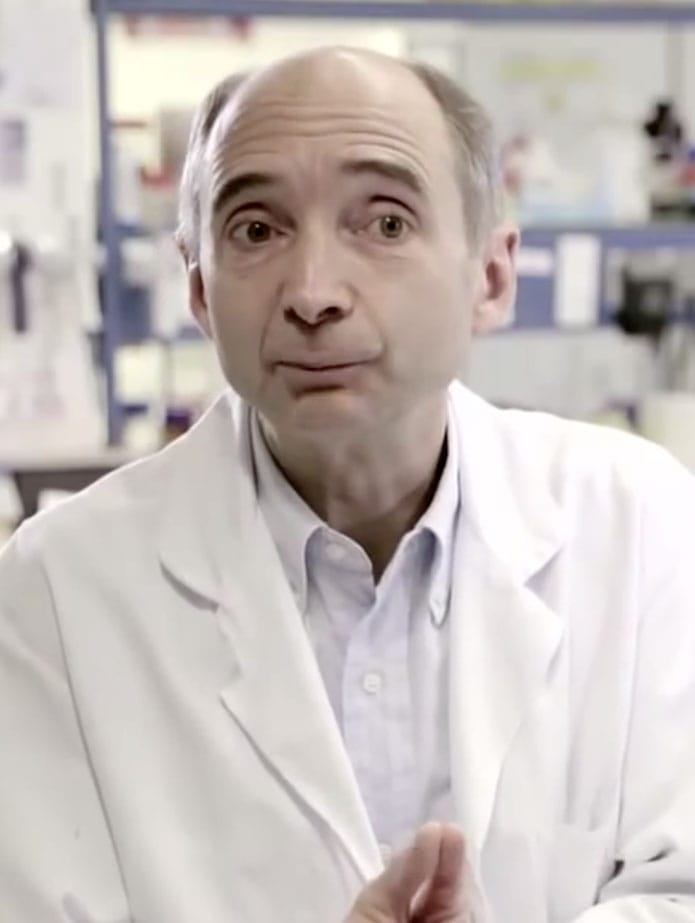Since the formation of the lab, Yves Beguin has focused on collecting hematopoetic stem cells (HSCs) from bone marrow and peripheral blood for transplantation. These multipotent cells can replenish all blood cell types and self renew. HSC transplantation is the ultimate treatment for patients with blood cancers such as leukemia and multiple myeloma. HSC transplantation remains a difficult procedure with many possible complications. However, the survival rates for patients have increased and the use of this technique has expanded to other diseases such as autoimmune diseases.
Today the LTCG holds three accredited tissue banks: cord blood, HSC and non-HSC. Beguin and his team are involved in more than 25 clinical trials, including both unicenter and multicenter studies, within the field of cell therapy. They aim to apply for full Good Manufacturing Practice (GMP) certification this year, and the final validation for the mesenchymal stromal cell (MSC) production process in underway. Successful Belgian stem cell therapy companies including Cardio3 Biosciences, Bone Therapeutics, and Imcyse all started their clinical programs in the LTCG. Imcyse is the new kid on the block: this spin-off from KU Leuven has set up shop in Liège as well. They will start a Phase I trial in April to test a first-of-its-kind disease-modifying vaccine to treat multiple sclerosis. The CD4+ T cells used in the trial are prepared in a close collaboration between the LTCG and MaSTherCell.
‘We’ve been able to grow and expand our activities over the years’, Beguin explains. ‘We now house the second largest transplant center in Belgium and perform 100 HSC transplants per year: 60 allogenic and 40 autologous. The lymphocytes we collect can be used for various purposes. For example, we have a program for the purification of regulatory T-cells from donors, used in patients with severe chronic graft-versus-host disease (GVHD) after HSC transplantation. Chronic GVHD is a serious problem, triggering an immune response of donor lymphocytes against the patient’s healthy organs ‘.
Moving into prevention of graft rejection and GVHD
‘For many years, we have developed a vast program on the production of MSCs that can differentiate into a variety of cell types. We collect small volumes of bone marrow from volunteers, using local anesthesia. Four weeks of culturing the cells results in a large amount of MSCs: from one donor we can get on average eight clinically relevant doses of MSCs. The doses are frozen and used to infuse patients enrolled in our clinical trials. So far, we have treated more than 270 patients in the different protocols’.
‘With our three MSC intervention trials we are tackling some of the complications that occur with HSC transplantations. One example is severe acute GVHD, where the newly transplanted donor cells attack the transplant recipient’s body. We treated 40 patients resistant to first line therapy (corticosteroid treatment to suppress the immune system) in a multicenter study in Belgium and are now analyzing the data’, Beguin explains.
Beguin’s group also initiated two prevention trials focusing on patients with a high risk of rejection and GVHD, these patients have an HLA (human leukocyte antig)-mismatch with the donor cells: ‘Two hours before the initial transplant we infuse MSCs to prevent graft rejection and GVHD. We don’t have the results of this randomized placebo-controlled trial yet, but the initial pilot phase II trial in 30 patients showed very encouraging results with reduced risks of severe GVHD and increased overall survival’.
Pre-osteoblast trials for Bone Therapeutics
The LTCG is proud to be part of the success of companies such as Bone Therapeutics: ‘The trials with pre-osteoblasts gave interesting results. We collected bone marrow from patients with osteonecrosis and a non-union fracture. The cells were cultured in the lab and differentiated towards bone-forming preosteoblasts. We reimplanted the cells in the same patient: at the site of the non-union fracture or in the femoral head for the patients with osteonecrosis. For these two trials, Bone Therapeutics developed the process, but we produced the cells in our lab and treated the patients at the University Hospital in Liège. For one of the trials, the study was also conducted in Erasme. We will be publishing these results soon!’
Bone Therapeutics is now producing preosteoblast cells on its own and they are moving into the new facilities of the ‘Walloon Cell Therapy Platform’ in Gosselies. Together with Promethera BioSciences, a company specialized in the treatment of liver diseases, they will be the first two companies to move in. The new facilities comprise almost 2.000m2 of state-of-the-art clean rooms for production and 1.300m2 for research and quality control.
Expanding in 2018
In the future, Beguin hopes to facilitate even more spin-offs and academic research groups: ‘In 2018 we will move into the new Cancer Center here at the Centre Hospitalier Universitaire du Liège (CHU) Campus. We will be doubling our clean room facility to 400 m2 and we will be able to facilitate more services in cell therapy to external parties. We have a lot of expertise to share!’
Bio Yves Beguin
Yves Beguin was born in Kalenda, Congo in 1958. He obtained his medical degree in 1982 and specialization in hematology in 1987 at the university of Liège. During his 2-year tenure in the US, he also worked at the Fred Hutchinson Cancer Center in Seattle, with director Donnall Thomas, the 1990 Nobel Prize Laureate for medicine. In 1988 he became director of the cell therapy lab at CHU in Liège and in 2009 professor of hematology at the University of Liège and head of the department of clinical hematology at the CHU of Liège.


